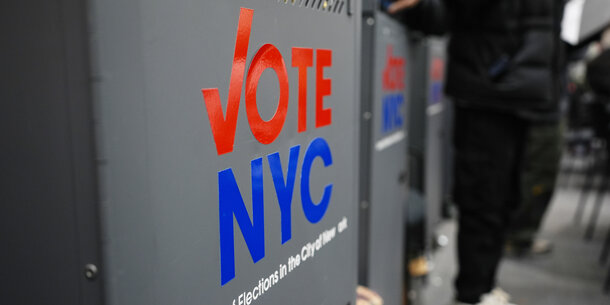Since last Wednesday’s failed insurrection, it’s been tempting to divide Republicans into two loose categories.
On one side are the open enemies of democracy: President Trump and the GOP lawmakers who tried to challenge the electoral vote count on his behalf, as well as the far-right figures involved in the deadly invasion of the Capitol. These people are already paying at least some kind of price: prominent rioters are being arrested, albeit belatedly, Sens. Josh Hawley (MO) and Ted Cruz (TX) are being appropriately canceled by the wider culture, and impeachment is underway.
On the other side are the more pragmatic conservatives — Republican leaders like Vice President Mike Pence, Sens. Mitch McConnell (KY) and Lindsey Graham (SC), who got off the Trump Train just before its final, violent crash. These people face a complicated political situation, to put it mildly, but they remain in basically good standing with the civilized world.
But we’re in danger of drawing the line in the wrong place. It’s not just that GOP leaders continued to back Trump long after his authoritarianism, racism, and personal corruption were impossible to deny. More important, Wednesday’s catastrophe was just the final doomed cavalry charge in an anti-democratic campaign in which these same leaders played starring roles. You don’t get to the point where you’re storming the Capitol to overturn election results — with at least 16(!) Republican state lawmakers as part of the mob — if you haven’t already spent years undermining democracy. You don’t get there if you haven’t already encouraged your supporters to believe that things like free elections and procedural fairness can be dispensed with if they’re obstacles to your agenda.
It starts with voting. For about a decade and a half — since Donald Trump was a reality TV star who most of us could safely ignore — the GOP has been aggressively promoting the lie that drove the invasion of the Capitol, that illegal voting is rampant. For almost as long, Republican-controlled states have used this lie to justify voter suppression laws that disenfranchise many more legitimate than illegitimate voters, and usually target racial minorities. In fact, even now, GOP lawmakers are using Trump’s bogus voter fraud claims to prepare new restrictive measures, especially targeting mail voting, which skewed heavily Democratic. McConnell et al haven’t lifted a finger in response to this potential new wave of suppression (in fact, Graham advocated for it in order to, he has said, ensure that Republicans can continue to win elections.)
But the party also has fully embraced plenty of other positions that mock democratic principles: That the rich should be permitted a louder voice in election campaigns than the rest of us. That politicians should be in charge of drawing their own districts, the will of voters be damned. That it’s OK to prevent a sitting president from filling a Supreme Court vacancy based on nothing other than the power principle. That it’s also fine for a president to use his power to pressure a foreign government to weaken a political rival. That nonviolent protests need to be reined in. That government officials including the president can use their offices to enrich themselves and there’s nothing people can do about it.
All of this has sent the message — sometimes stated outright — that full democracy isn’t just inconvenient, but a threat to conservative goals. Last Wednesday wouldn’t have happened without that ideological groundwork being laid.
Two points follow from this reality. First, that no bright line separates the Trump/Cruz/Hawley contingent on one side from the Pence/McConnell/Graham faction on the other. They all were fully signed on to the assault on democracy that brought us to the point of an armed insurrection. In a better world, it wouldn’t just be the former group that was being written out of polite society, stripped of book deals and golf tournaments, and invitations to come on Meet the Press. It would be all of them.
More important, the only appropriate way to respond to this crisis is not just by holding the perpetrators accountable, but also by actively strengthening our democracy, so that it’s freer, fairer, and more accessible than before. In the For the People Act (H.R. 1), Congress has the chance to pass legislation that would make voting easier, require fair election maps, democratize campaign funding, and ensure that government officials do the people’s business, not their own. After all, what better way is there to fight back against those who tried to suppress democracy than to finally make our system more responsive to the will of voters?
The views expressed are the author’s own and not necessarily those of the Brennan Center.



